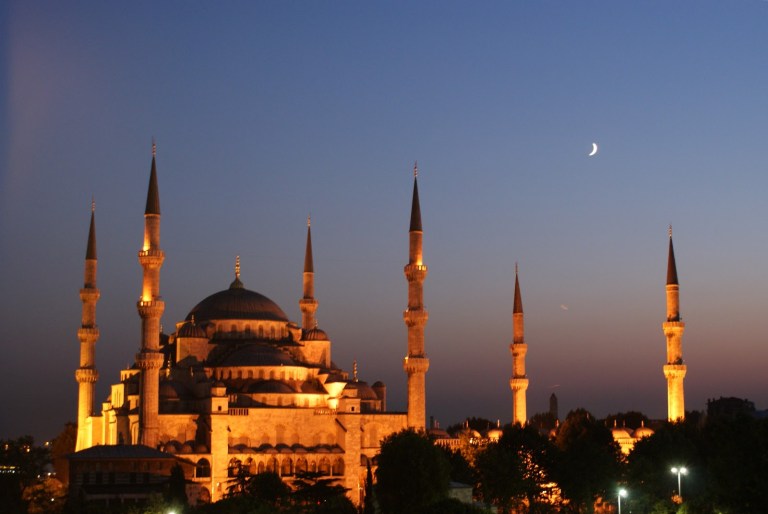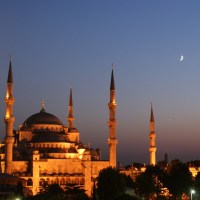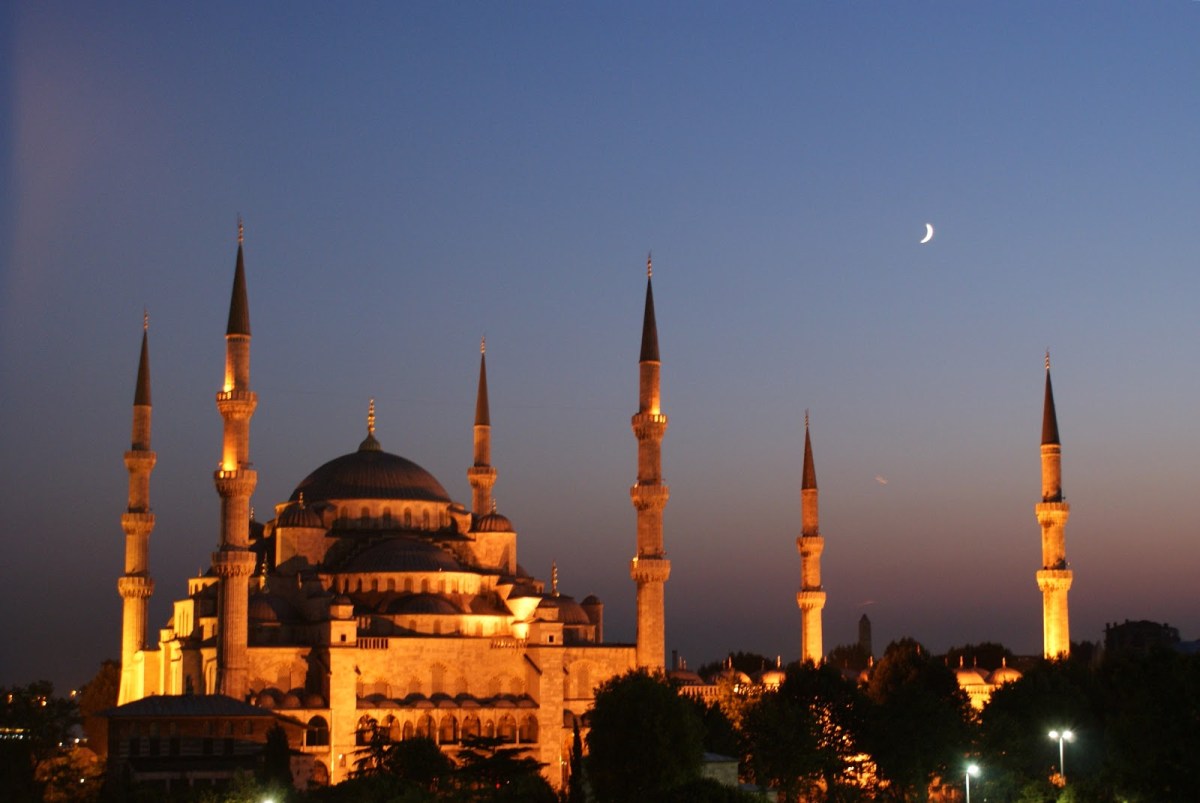Editor’s note: This post was published in 2018. Ramadan will look different this year due to COVID-19, but it’s still worth reflecting on the significance of this season for the world’s 2 billion Muslims.
Eyes will be focused skyward in the Islamic world tonight, as observant Muslims around the world look for the appearance of the thin crescent moon in the night sky marking the beginning of the month, and the start of the spiritual season of Ramadan.
Ramadan is a time of spiritual renewal and a time set apart—a chance for Muslims to refocus on what’s important, to let go of things that distract. Ramadan is a time for prayer, for reading the Qur’an, and for acts of charity. It provides a lens through which to examine everyday life, to see where there might be distance from God.

While Ramadan is about so much more than fasting, abstinence is a means to focus on spiritual things. Icelandic Muslims (yes, there is a small Muslim community in Iceland) will find the hours of sunup to sundown fasting—from anything that has power over physical desires, including food and water—very long, because Ramadan falls in their late spring this year. Their fast will last 21 hours. For Muslims in Argentina, currently in Autumn, their fast will be quite short by comparison—just 11.5 hours.
Not all Muslims will fast though. Some choose not to practice this aspect of their faith. There are also a number of observant Muslims who won’t be fasting because of their circumstances.
The first week of Ramadan is known as the “Days of Mercy,” and the belief in a God of mercy is a great lens to use to understand Ramadan. For Muslims, the Days of Mercy serve as a reminder of three things…
1. God does not ask more of believers than they can give.

When it comes to the the Ramadan fast, those who would be harmed by fasting shouldn’t fast… they aren’t supposed to.
Children, the elderly, and women who are pregnant, breastfeeding, or menstruating—they won’t be fasting. Those who are seriously ill, they shouldn’t fast. Those traveling more than 50 miles from home, they won’t fast during Ramadan, but they’ll make up their fast days later once they’re home.
Ramadan isn’t supposed to be easy, but it isn’t supposed to be damaging, either. Because these are meant to be days of mercy.
2. There is companionship on the journey.
Observing Ramadan is an individual choice (and there should be no compulsion from another person to observe), but it is practiced collectively.
Each will pray at the same hours throughout the day. Other believers can empathize and encourage each other during the long hours of hunger and thirst. They will break their fast together, with a big meal enjoyed with family and friends.
Muslims understand in a way that some Christians—particularly in the West—often do not, that community is essential for practicing faith.
3. Giving to others is an essential part of life.
Fasting food and drink helps to more easily understand the suffering of the poor. And giving food to the poor and marginalized during Ramadan is a vital way to faithfully practice Islam.
You might think that Muslims in the Middle East would have no trouble remembering those affected by war and poverty, but humans are the same the world over—we get busy with our lives, and everyone forgets sometimes. Giving during Ramadan ensures that the forgotten ones are remembered and cared for.
RELATED: 3 Ways to Support Your Muslim Neighbors This Ramadan
For those outside Islam, it might seem reasonable that people would look for an excuse not to fast—especially for those in the northern hemisphere, where the hours of fasting are so long this year. But for the most part, observant Muslims don’t look for ways to “get out of” fasting.
This is a special time of year, where two billion people press into a common love, at the same time. There is a special sense of camaraderie, of togetherness.
If you find yourself invited to an iftar meal this month—the sunset meal where communities gather to break their fast together—by all means, go! Take in the joy and celebration of a day well spent.


